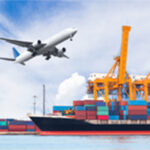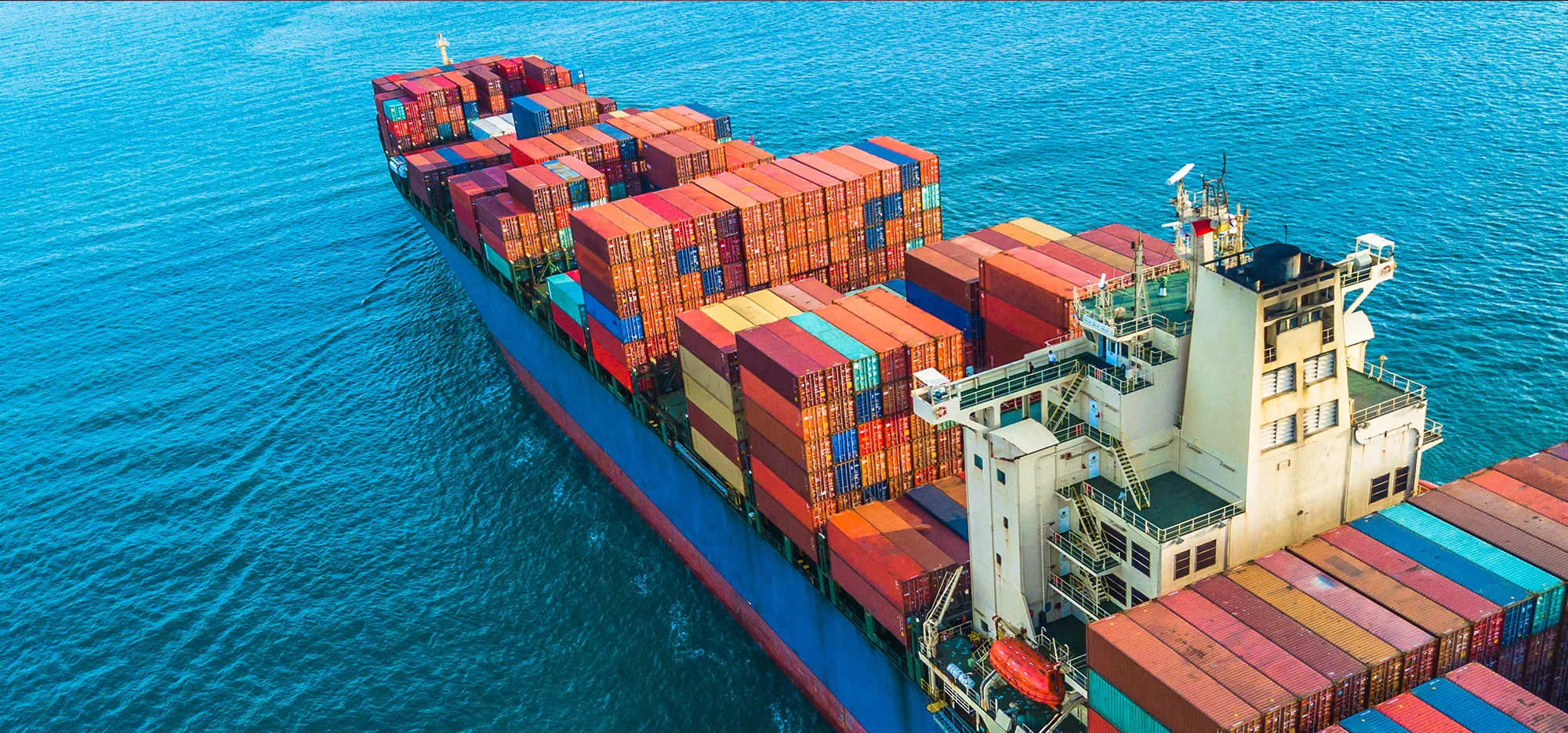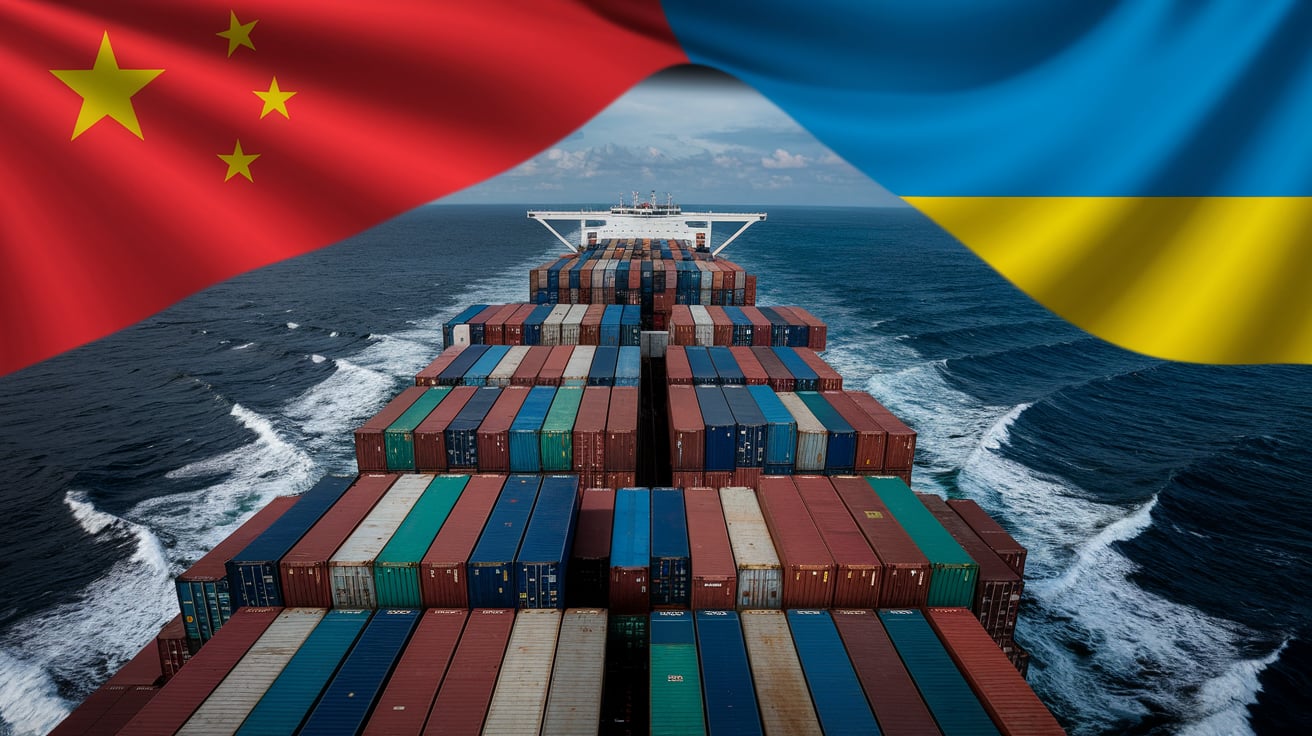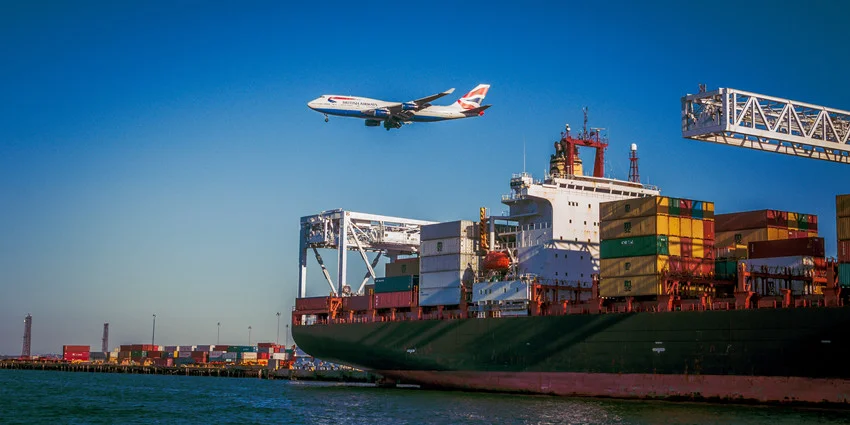Navigating the complexities of shipping goods from China to Serbia can be challenging, especially when cost efficiency is a top priority. With various shipping options available, including Air Freight and Sea Freight, understanding the strengths and limitations of each method is crucial for importers. Additionally, several factors, such as shipment weight, delivery distance, customs duties, and taxes, significantly influence shipping costs. This guide will provide insights into the best practices for finding the most economical shipping company, comparing options, and implementing strategies to reduce overall shipping expenses. Whether you are a seasoned importer or new to international logistics, this comprehensive overview will equip you with the knowledge needed to make informed shipping decisions.

Understanding Shipping Options from China to Serbia
Overview of Shipping Methods Available
When shipping from China to Serbia, businesses and individuals primarily utilize two main methods: Air Freight and Sea Freight. Each method has unique advantages and is suited for different types of shipments.
- Air Freight:
- Speed: Air freight is significantly faster than sea freight, often taking just a few days for delivery. This is particularly advantageous for time-sensitive shipments or small parcels.
- Cost: Although air freight is generally more expensive per kilogram than sea freight, it can be cost-effective for high-value goods or smaller shipments where speed is essential.
- Ideal For: Electronics, fashion items, perishable goods, and urgent deliveries.
- Sea Freight:
- Cost-Effectiveness: Sea freight is typically much cheaper for larger shipments. This method operates on a cost-per-cubic-meter basis, making it highly economical for bulk goods.
- Delivery Time: Transit times are longer, usually taking several weeks, but for non-urgent shipments, this delay can be acceptable.
- Ideal For: Heavier and bulkier items, such as machinery, furniture, or large quantities of raw materials.
Comparison of Air Freight and Sea Freight
| Feature | Air Freight | Sea Freight |
|---|---|---|
| Average Transit Time | 1-7 days | 15-40 days |
| Cost Per Kilogram | Higher (approx. $5-$10) | Lower (approx. $0.5-$3) |
| Best for | Urgent and high-value goods | Bulk and heavy shipments |
| Insurance | Typically higher premiums | Generally lower premiums |
| Environmental Impact | Higher emissions | Lower emissions per ton |
| Customs Clearance Speed | Faster | Slower |
Understanding these differences helps importers in Serbia decide which shipping method aligns with their specific needs and budget.
Key Factors Influencing Shipping Costs
Shipping costs from China to Serbia are influenced by several critical factors. Awareness of these elements can help businesses plan their logistics more effectively.
Weight and Dimensions of Your Shipment
The weight and dimensions of your shipment are primary determinants of shipping costs. Freight forwarders often use these metrics to calculate the volumetric weight, which can significantly vary depending on the dimensions of the package.
Distance and Delivery Time Considerations
The shipping route from China to Serbia affects costs due to variable distances involved. Routes that are direct may be more economical and faster. However, shipping times can impact your overall logistics strategy.
- Distance Impact: Longer distances generally result in higher fuel costs, which can be reflected in the shipping rate.
- Delivery Time: Urgent shipments incur higher costs, so balancing time and cost is essential for effective logistics management.
Customs Duties and Taxes in Serbia
Customs duties and taxes are crucial factors that directly influence the total cost of shipping. Understanding the Serbian customs regulations is vital for businesses to avoid unexpected fees and delays.
- Tariffs: Import tariffs vary depending on the type of goods being imported. It is advisable to check the latest tariff rates which can be found on the Serbian Customs Administration website.
- Value-Added Tax (VAT): Serbia applies a VAT on imported goods, typically at a rate of 20%. This tax adds an additional layer to the overall shipping cost.
Example of Expected Costs
| Item Type | Estimated Customs Duty (%) | Estimated VAT (%) | Total Estimated Tax (%) |
|---|---|---|---|
| Electronics | 0-5% | 20% | 20-25% |
| Apparel | 12-20% | 20% | 32-40% |
| Machinery | 2-5% | 20% | 22-25% |
Understanding these variables will empower importers from China to Serbia to make informed decisions that optimize their shipping strategy.
Dantful International Logistics serves as a reliable partner for all your shipping needs, offering door-to-door shipping solutions and comprehensive customs clearance services. Our expertise ensures that you can navigate the complexities of international shipping with ease. For further assistance, consider exploring our shipping options to ensure your goods arrive safely and on time.
Read More:
- Shipping From China To Netherlands
- Shipping From China To Spain
- Shipping From China To Germany
- Shipping From China To France
- Shipping From China to Italy
- Shipping From China To Poland
- Shipping From China to United Kingdom
How to Research Shipping Companies Effectively
Utilizing Online Freight Marketplaces
Online freight marketplaces are valuable resources for finding reliable shipping companies that fit your logistical needs. These platforms connect shippers with freight forwarders, allowing for easier comparisons and selections. Some key advantages include:
- Wide Range of Options: You can access multiple shipping companies in one place, facilitating a more comprehensive comparison based on your specific requirements.
- Instant Quotes: Many platforms offer instant quotations, allowing you to evaluate costs without going through lengthy negotiations.
- Transparent Information: Detailed profiles of shipping companies, including their services, pricing structures, and client ratings, enable you to make informed decisions.
Some popular online freight marketplaces include:
- Freightos
- uShip
- ShipBob
- CargoX
Utilizing these platforms can streamline your search process and provide a robust foundation for your shipping decisions.
Reading Customer Reviews and Testimonials
Customer reviews and testimonials are critical in evaluating the credibility and reliability of shipping companies. They provide real-world insights into the shipping experience from the perspective of other importers.
Key points to consider when reading reviews:
- Look for Consistency: Focus on recurring themes in customer feedback, such as reliability, customer service, and quality of service.
- Evaluate Star Ratings: Many review platforms use a star rating system. High average ratings often indicate a dependable service provider.
- Check for Recent Reviews: More recent reviews provide updated perspectives on a company’s current performance and practices.
Websites like Trustpilot, Google Reviews, and shipping forums can be excellent resources for gathering this information.
Comparing Shipping Companies
When comparing shipping companies, it’s essential to have a clear set of criteria to ensure you choose the best fit for your needs. The following factors are crucial in making an informed decision.
Criteria for Comparison
| Criteria | Description |
|---|---|
| Cost | Analyze the total shipping cost, including hidden fees and surcharges. |
| Reliability and Reputation | Assess the company’s history of on-time deliveries and overall customer satisfaction. |
| Transit Time | Evaluate the average time taken for shipments to reach their destination. |
| Customer Service | Consider the quality and availability of customer support, including responsiveness and issue resolution. |
These criteria will help you systematically assess each shipping company, ensuring that your chosen provider aligns with your priorities.
Top Shipping Companies
Several shipping companies are recognized for their reliability and efficiency in handling international shipments. Below is an overview of leading shipping companies, along with a comparative table highlighting their key metrics.
Overview of Leading Shipping Companies
- DHL
- Global leader in international express shipping services.
- Known for its extensive network and fast delivery options.
- Dantful International Logistics
- Provides comprehensive logistics solutions tailored for global trade.
- Offers door-to-door shipping and customs clearance services.
- FedEx
- Offers a wide range of express transportation and logistics services.
- Known for its commitment to innovation and customer satisfaction.
- UPS
- Renowned for its reliable shipping and logistics services.
- Provides a broad range of options for both domestic and international shipments.
Comparative Table with Key Metrics
| Shipping Company | Average Cost (per kg) | Transit Time (Days) | Reliability Rating | Customer Service Level |
|---|---|---|---|---|
| DHL | $5-$10 | 1-5 | 4.8/5 | Excellent |
| Dantful International Logistics | $3-$7 | 5-10 | 4.7/5 | Excellent |
| FedEx | $6-$12 | 1-7 | 4.6/5 | Very Good |
| UPS | $5-$11 | 2-6 | 4.5/5 | Very Good |
This table provides a clear visual comparison of the top shipping companies, highlighting their average costs, transit times, reliability ratings, and customer service levels.
By carefully evaluating these metrics and conducting thorough research, importers can confidently select a shipping company that meets their needs, ensuring a smooth and efficient logistics experience. Dantful International Logistics stands out as a cost-effective and high-quality option for global traders looking for reliable shipping services. For more information on our offerings, visit Dantful Logistics.
Tips for Reducing Shipping Costs
Bulk Shipping
One of the most effective ways to reduce shipping costs is by utilizing bulk shipping. When shipping larger quantities of goods, companies can take advantage of economies of scale, which often result in lower costs per unit.
- Cost-Effective Rates: Shipping companies frequently offer discounted rates for bulk shipments. By consolidating orders and shipping larger volumes, businesses can negotiate better pricing.
- Reduced Handling Fees: Bulk shipments typically incur fewer handling fees compared to multiple smaller shipments. This not only saves money but also reduces the risk of damage during handling.
- Improved Shipping Efficiency: Shipping in bulk can also streamline logistics processes, reducing the time and resources spent on managing multiple shipments.
For businesses that anticipate consistent demand, planning for bulk shipping can lead to significant savings over time.
Flexible Shipping Dates
Another effective strategy for reducing shipping costs is to maintain flexible shipping dates. Shipping costs can vary significantly depending on the time of year, demand, and other factors.
- Off-Peak Shipping: Transporting goods during off-peak times can lead to lower rates. Many shipping companies offer reduced prices for shipments scheduled during less busy periods.
- Avoiding Premium Charges: Urgent shipping requests often incur premium charges. By planning shipments in advance and allowing for flexibility, businesses can avoid these high costs.
- Consider Alternative Transit Times: If possible, explore longer delivery times that may yield lower prices. While immediate delivery might be tempting, the savings from a slower shipping option can be substantial.
By leveraging flexibility in shipping schedules, businesses can capitalize on lower rates and optimize their overall logistics costs.
Negotiating with Shipping Companies
Negotiating with shipping companies can also yield benefits regarding shipping costs. Developing a good working relationship with logistics providers can open doors to better pricing and service options.
- Long-Term Contracts: If a business frequently ships goods, entering into a long-term contract with a shipping company can lead to better rates and terms. Providers often reward consistent business with lower prices.
- Volume Discounts: Companies that can project their shipping needs may negotiate volume discounts based on anticipated shipping volumes over a specified period.
- Service Bundling: Some shipping companies offer bundled services, including customs clearance and warehousing. Negotiating a package deal can result in overall savings compared to using separate providers for each service.
Proactive negotiation can significantly enhance shipping terms and lead to cost savings that benefit the bottom line.
FAQs
- What are the main shipping methods available for importing goods from China to Serbia?
- The primary shipping methods are Air Freight and Sea Freight. Air freight is faster but more expensive, ideal for urgent and high-value goods. Sea freight is cost-effective for bulk shipments but has longer transit times.
- How can I reduce shipping costs when importing from China?
- To minimize shipping expenses, consider bulk shipping, maintain flexible shipping dates, and negotiate with shipping companies for better rates. Consolidating orders and planning shipments during off-peak times can also lead to significant savings.
- What factors influence shipping costs from China to Serbia?
- Key factors include the weight and dimensions of the shipment, the distance and delivery time, as well as customs duties and taxes applicable in Serbia. Understanding these variables will help you better estimate total shipping costs.
- How do customs duties and taxes affect my shipping budget?
- Customs duties and taxes, such as the Value-Added Tax (VAT) in Serbia (typically 20%), can significantly impact the total cost of shipping. Different goods have varying duty rates which should be considered when calculating overall expenses.
- What should I look for in a shipping company?
- When researching shipping companies, consider cost, reliability, transit time, and the level of customer service. Reading customer reviews and utilizing online freight marketplaces can help in making an informed decision.
- Can I get assistance with customs clearance and shipping logistics?
- Yes, Dantful International Logistics provides comprehensive customs clearance services and door-to-door shipping solutions, helping businesses manage the complexities of international shipping effectively.
- How can I compare different shipping companies?
- Use criteria such as average cost, transit times, reliability ratings, and customer service levels to compare shipping companies. Creating a comparative table can aid in visualizing differences and making the best choice for your shipping needs.

Young Chiu is a seasoned logistics expert with over 15 years of experience in international freight forwarding and supply chain management. As CEO of Dantful International Logistics, Young is dedicated to providing valuable insights and practical advice to businesses navigating the complexities of global shipping.





















